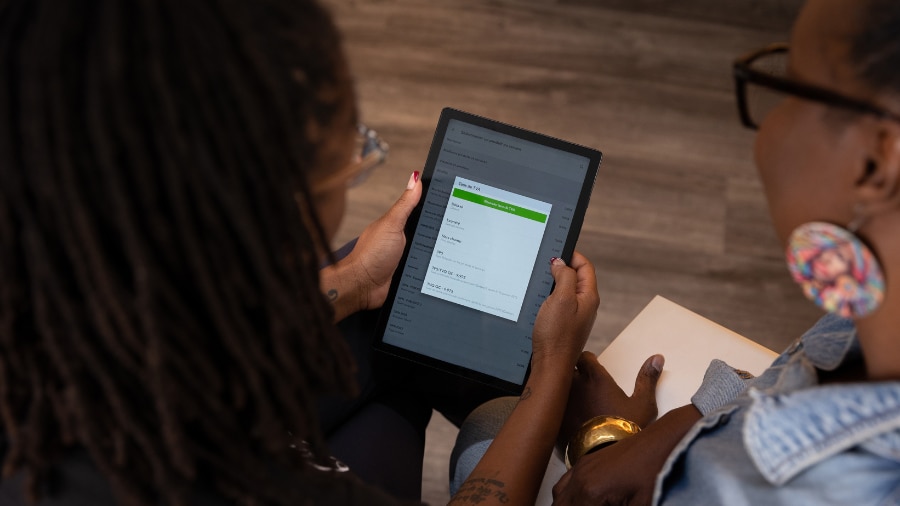Common tax write-offs for businesses
As a small business owner, understanding the expenses you can deduct (or what you can write off) is key to minimizing your taxable income and maximizing savings. The CRA allows you to claim a variety of deductions for business-related costs, provided they are reasonable and directly tied to earning income.
Below are some of the most common small business deductions you should be aware of, along with practical examples to help you navigate these claims.
1. Advertising
You can deduct advertising expenses related to promoting your business, such as online ads, social media campaigns, print ads, or sponsorships. However, ensure these ads are placed in Canadian media outlets to qualify under CRA rules.
A bakery running Facebook ads to attract local customers can deduct the cost of the ads as a business expense.
2. Bad debts
If your business uses the accrual method of accounting, you can deduct debts that are owed to you but cannot be collected. This commonly applies to unpaid invoices for goods or services.
A graphic designer completes a project for a client who later declares bankruptcy. The unpaid invoice can be claimed as a bad debt expense.
3. Vehicle costs
If you use a vehicle for business purposes, you can deduct costs such as fuel, insurance, repairs, and maintenance. If the vehicle is also used for personal purposes, you must track the percentage of business use and deduct expenses accordingly.
A mileage tracker is a great way to keep track of vehicle expenses. In addition to noting the mileage of your vehicle at the beginning and end of the year, for each trip note the date, purpose of the trip, and kilometres driven.
A delivery driver logs that 80% of their vehicle use is for business. They can deduct 80% of their fuel, insurance, and maintenance costs.
4. Standby charges
For business owners who provide vehicles to employees, standby charges refer to the taxable benefit associated with personal use of those vehicles. The CRA has specific rules for calculating these charges, and it’s important to track personal vs. business use accurately.
A company provides an employee with a leased car for work purposes, but the employee also uses it for personal errands. The standby charge must be calculated and included as a deduction.
5. Meals and entertainment
You can deduct 50% of the cost of meals and entertainment incurred for business purposes, such as taking a client to lunch or hosting a team-building dinner. Ensure these expenses are documented and include details like date, location, purpose, and attendees.
A consultant takes a potential client to a networking dinner and spends $100. They can deduct $50 (50% of the total cost) as a business expense.
6. Rent and business maintenance
If your business rents office space or a storefront, you can deduct the rental costs. You can also claim expenses for maintenance, repairs, or utilities associated with the property.
A florist renting a downtown shop can deduct their monthly rent, hydro, and costs for maintaining the space, such as repainting or replacing lighting fixtures.
7. Interest on loans
If you’ve taken out a loan to finance your business, the interest paid on that loan is deductible. This also applies to business lines of credit or credit cards used for business-related purchases.
A small restaurant owner takes out a $20,000 loan to renovate their kitchen. The interest paid on this loan can be claimed as a business deduction.
8. Office expenses
Expenses related to office supplies, such as stationery, paper, and software subscriptions, are deductible. These deductions also extend to home office costs if you use part of your home for business purposes. For home office expenses, the amount deducted must be prorated based on the percentage of your home used for business.
A freelance writer purchases a new printer and subscription to design software for client work. Both are eligible deductions. The same writer works from home and has no other office space. Their office takes up 20% of the square footage of their home. They can also deduct 20% of expenses like mortgage interest, property taxes, house insurance, and utilities.
9. Payroll
If you have employees, you can deduct salaries, wages, and benefits paid to them. This includes Canada Pension Plan (CPP) contributions and Employment Insurance (EI) premiums you pay as an employer.
A small café employs three part-time staff and pays $30,000 annually in wages. These wages, along with the employer’s portion of CPP and EI, are deductible.
10. Travel
Business travel expenses, such as airfare, hotel stays, car rentals, and meals, are deductible if the trip is for work purposes. Keep detailed records of the trip’s purpose and all related receipts. Personal travel costs cannot be included.
A consultant travels to Montreal to meet with a client, incurring costs for airfare, two nights in a hotel, and meals. These expenses are deductible as they are directly related to business activities.
11. Business insurance
Premiums paid for insurance policies that protect your business, such as liability, property, or commercial auto insurance, are deductible. These expenses ensure your business is safeguarded and qualify as a necessary operating cost.
A retail store pays monthly premiums for commercial liability insurance to protect against customer injuries on the premises. The full cost of these premiums can be claimed as a deduction.
12. Bank charges
Fees for maintaining a business bank account or using business credit cards are deductible. This includes monthly account fees, transaction fees, and charges for wire transfers or overdrafts.
A small e-commerce business incurs a $20 monthly fee for its business checking account and additional transaction fees for online payments. These charges are eligible for deduction.
13. Depreciation
Also known as capital cost allowance (CCA), depreciation allows you to deduct a portion of the cost of long-term assets, like equipment or vehicles, over several years. The CRA has specific rates for different asset classes.
A photographer purchases a $5,000 camera. Using the CRA’s prescribed rate for equipment, they claim a portion of the cost (for example, 20%) as a depreciation deduction each year.
14. Professional fees
Payments to professionals such as accountants, bookkeepers, and lawyers for services directly related to your business are fully deductible. This includes fees for tax preparation, financial advice, or legal consultations.
A bakery hires an accountant to prepare its taxes and pays a $1,000 fee. This cost is deductible as it is directly tied to operating the business.
15. Utilities
Expenses for utilities like electricity, water, heating, and internet services used in your business operations are deductible. If you work from a home office, you can deduct a percentage of these costs based on the proportion of your home used for business.
A graphic designer who uses 10% of their home as an office claims 10% of their electricity, heating, and internet costs as business expenses.




